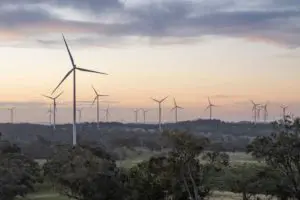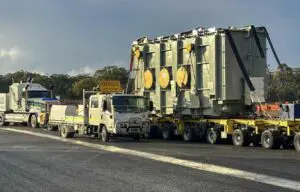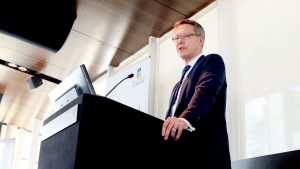A new round of solar powered election promises are being unveiled around the country, with just five working days until the New South Wales state election, and a matter of weeks until a federal poll is held.
In NSW, the Coalition government has promised to make it easier for strata committees to approve solar and battery storage systems for apartment blocks in the state.
Premier Gladys Berejiklian said the party, if re-elected, would introduce strata law changes to lower the voting threshold from 75 to 50 per cent, “to more easily install solar panels, battery storage and electric vehicle charging points in strata buildings.”
“We want everyone to have access to renewable energy and lower energy bills,” she said.
The new policy addresses a key barrier to the uptake of distributed renewables in Australia, which is the lack of easy access to technologies like rooftop PV for huge numbers of people, due to where they live.
It’s a particularly big problem for Sydney which, according to 2017 data, more than half of residents were deemed to be “locked out” of solar. In North Sydney alone, almost three-quarters of residents couldn’t access solar because they were renters or lived in apartment buildings.
Berejiklian and her energy minister Don Harwin also announced $10 million for a new recycling fund for solar panels and battery systems, in anticipation of the roughly 30,000 tonnes of used panels and batteries expected to enter landfill by 2030.
“We want to recycle and re-use materials in solar panels and battery systems as NSW transitions towards cleaner energy,” Berejiklian said.
NSW Labor, meanwhile, tapped the zeitgeist of last Friday’s student climate strike, announcing on Sunday $100 million to install solar PV on more than 350 schools.
NSW Labor leader Michael Daley, one of the few major party politicians around the country who openly supported the student strikers, said the package would reduce schools’ power costs while also educating students further on renewable energy.
“As we saw at rallies across the country on Friday, the next generation is demanding real action on climate change,” Mr Daley said in a statement on Sunday.
“The Labor Party knows that climate change is real and unlike the Liberals and Nationals, we’re committed to tackling it.”
On the federal stage, the ALP put some meat on the bones of its own plan to support households traditionally locked out of the rooftop solar market.
Shadow minister for energy, Mark Butler said on Monday that a federal Labor government would establish a Community Power Hub in Victoria’s Barwon South West region, as part of its $100 million Community Renewables Program announced in November last year.
The program aims to give renters and social housing residents access to renewables by supporting local community projects like solar gardens, community wind farms, energy efficiency upgrades, and grants for community groups to pilot new projects, Butler said.
The focus on that region builds on the work of the Barwon Region Alliance for Community Energy (BRACE), which is made up of a number of community groups that have implemented solar and battery bulk-buy schemes across the Bellarine Peninsula.
“These hardworking community groups just need a government in Canberra willing to back them in and support these impressive projects,” Butler said in a statement on Monday. “The Hub will bring legal and technical expertise to the passion of community ideas.”
Also on the federal stage, independent contender for the seat of Kooyong, Oliver Yates, is waging a fierce climate and renewables focused battle against the current member for the blue ribbon Liberal electorate, federal treasurer Josh Frydenberg.
Yates, a former Liberal Party member and vocal critic of the Coalition’s recent policy record on climate and energy, has promised to encourage the establishment of a council-based household solar program based on the Environmental Upgrade Agreements currently used in Victoria, South Australia and NSW.
“Australia’s local councils should be encouraged to set up programs to encourage the installation of the solar panels across the whole country, as well as upgrade the energy efficiency of homes and buildings,” Yates said on the weekend.
“The federal government could fund the program establishment and operation costs, which are estimated to be just $15,000 a council a year.”
Yates, who was the founding CEO of the federal government’s Clean Energy Finance Corporation, said establishing the necessary systems to support homes and businesses adopting more energy solutions was necessary to the current energy transition underway.
“We should get on with it,” he said. “Removing financial barriers that are preventing the adoption of cost saving measures needs to be a priority.”










